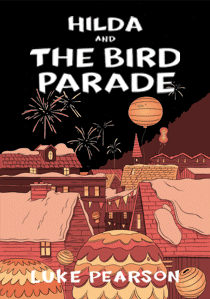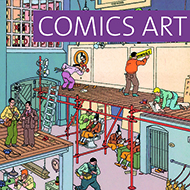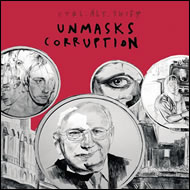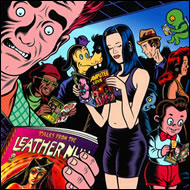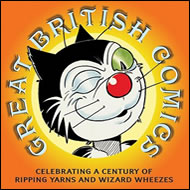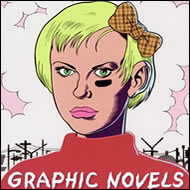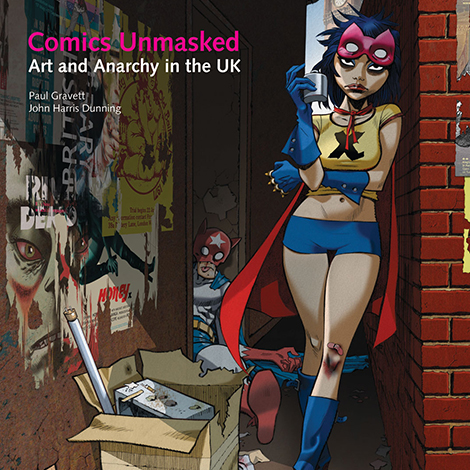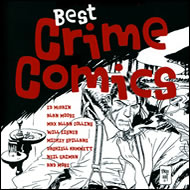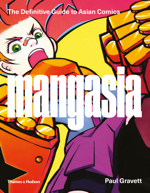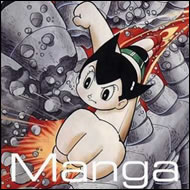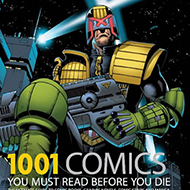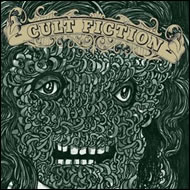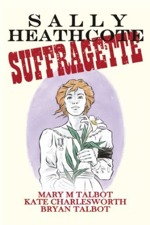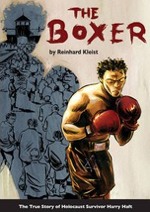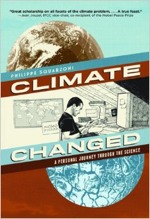PG Tips No.37:
Comics from the Heart of History

The non-fiction graphic novel can make difficult histories approachable and unforgettable. In the follow-up to their 2012 Costa Biography Award-winning Dotter of Her Father’s Eyes, Mary and Bryan Talbot join artist Kate Charlesworth on Sally Heathcote Suffragette (Jonathan Cape, £16.99), launching at The British Library’s exhibition Comics Unmasked: Art and Anarchy in the UK on May 2nd with an interview with The Observer‘s Rachel Cooke and premiere screening of the documentary about Bryan Talbot, Graphic Novel Man. While the three co-creators have grounded their account in thorough research and annotations, the Talbots choose to humanise the struggle for women to be granted the vote by showing key events from 1905 to 1916 through fictional eyes. Young Sally is a domestic in the Manchester household of Suffragette co-founder Emmeline Pankhurst, who casts off ‘the muslin badge of servitude’ and joins the cause enduring politicians’ chauvinism and chicanery, police brutality and imprisonment. A particularly harrowing scene takes us inside Sally’s cell in Holloway Gaol, where her hunger strike is broken only by cruel force-feeding. The Talbots connect us to the feelings of these turbulent Edwardian times, illustrated in Charlesworth’s vivid details, her palette muted to draw the eye to Sally’s red hair, the Suffragettes’ colours of purple, white and green, and the spilled blood. Their just demands ignored, these women resorted to violence, against property, not people. A century on, their determination still inspires.

Equally inspiring are the examples of the free-thinkers surveyed in Bohemians: A Graphic History (Verso, £9.99). Editors Paul Buhle and David Berger corral 22 other contributors to profile the rebels who defined America’s counterculture, from its origins in the 1850s, when Ada Clare returned from Paris to New York crowned the ‘Queen of Bohemia’, to Thelonious Monk and other 1940s bebop innovators. Walt Whitman, Gertrude Stein, Marcel Duchamp and Josephine Baker are featured, and so too are several fascinating, largely forgotten radicals. Successfully honing their lives or their life-changing moments into intense, occasionally densely worded comics from twenty to as few as three pages, this anthology proves the assertion, quoted here by V.F. Calverton, sexologist and Modern Quarterly editor, that ‘the cartoon speaks a language that is direct, pithy and dramatic’.

After book-length graphic biographies of Johnny Cash and Fidel Castro, Germany’s Reinhard Kleist chronicles the troubled Jewish-American heavyweight Harry Haft in The Boxer (SelfMadeHero, £14.99). For decades, the Polish-born Haft kept his damaging, dehumanising experiences in the concentration camps secret, disclosing them only in 2003 to his eldest son, who wrote his biography published in 2006, a year before his death. Haft could never forget boxing for the Nazis’ entertainment against his fellow prisoners, knowing the loser would die in the gas chambers. Haft moved to America in 1948 and pursued fame as a professional boxer so that his lost teenage love Leah might find him. Drawing in flourishes of inky brushstrokes, Kleist brilliantly uses subjective images of Haft’s victims and the SS officers’ baying hounds to convey his flashbacks in the ring. It’s the compelling tale of a born fighter, survivor and romantic.

Weighing in at nearly 500 pages, Climate Changed (Abrams ComicArts, £15.99) is Frenchman Philippe Squarzoni’s personal attempt to confront soberly the science, politics and economics about global warming and the challenges we face, or ignore at our peril. In crisp photo-referenced lifework, he investigates climate change through ‘talking heads’ of nine experts he interviewed, alongside graphs, graphics, and news reports of the big stories and the ‘little lives in little boxes’. To make this more digestible, Squarzoni skilfully interweaves symbolic references to movies, notably their beginnings and ends, as well as wash-toned reveries from his childhood, and chillingly surreal imagery, like a silhouetted crowd staring at towering screens advertising more products, as they stand oblivious in rising water. Above all, he inserts self-reflective interludes of his relationship, home, local countryside, working process and dilemmas about changing his way of life. He asks of himself and all of us, “Can we do it?” Economist René Passet warns, “Human nature resists all dictators, including Mother Nature.” This is one graphic novel without an ending, because its story isn’t over.

These Reviews first appeared in The Independent on 26 April 2014.

